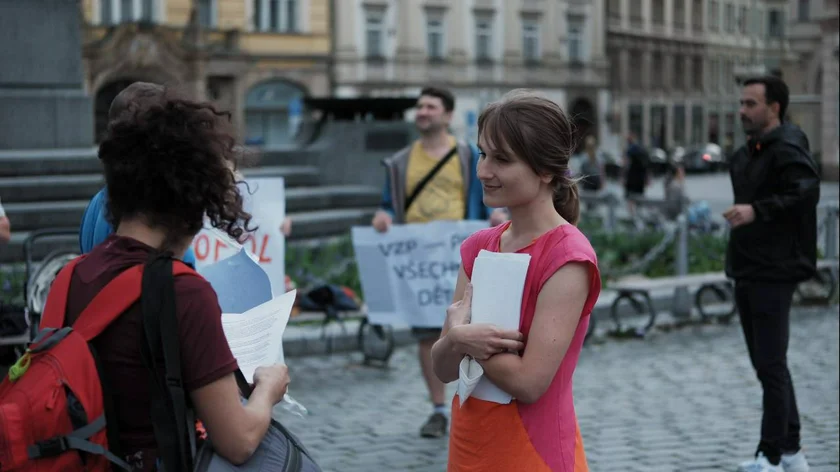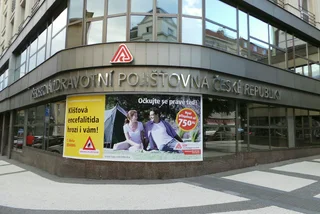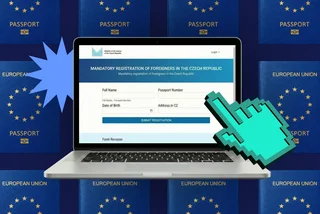In a significant development for foreigners with long-term stays in the Czech Republic, President Petr Pavel recently signed into law a new bill, effectively putting an end to the monopoly on insurance for the country's non-EU residents.
Part of the new legislation, set to take effect on Jan. 1, 2024, gives non-EU children with long-term residence permits and their families access to proper public health insurance, bringing much-needed relief to affected expat families.
Inessa Vasilevskaya, a Prague-based software engineer from Belarus, mother of two, and advocate for non-EU foreigners, particularly welcomed the news. Since autumn 2020, Vasilevskaya has been petitioning the Czech government to address a loophole in the Public Health Insurance Act that barred children of non-EU citizens from participating in the public health insurance system.
"My suggestion to include children as self-payers (OBZP or osoby bez zdanitelných příjmů) was supported by the Pirate Party and made it all the way to the parliament in the form of a law change, but was denied in summer of 2021 in favor of the PVZP monopoly," she said.
Vasilevskaya, who has helped numerous people file complaints about inaccessible health care with PVZP, called the law "a game-changer." She emphasized the importance of the change which will now allow children to register as self-payers with one of the country's seven health insurance companies.
She said that while previously, expats' families faced limited healthcare access for their children that led to financial burden, "with the new law, they will finally have the same access to quality healthcare as their employed parents."

Insurance agents still offering extended PVZP policies
However, in an interview with Expats.cz, Vasilevskaya also discussed concerns about insurance agents' practices, noting that some agents are offering PVZP policies for extended durations without informing parents about the forthcoming public health insurance option.
She told us that in the final week of July, a mother contacted her to verify information from an insurance agent. A month and a half after the bill's official signing, which clarified that kids require PVZP insurance until the end of 2023, Vasilevskaya said the agent continued to suggest that public health insurance for non-EU children may not be guaranteed and recommended 2-year PVZP coverage.
Vasilevskaya cautioned parents not to fall into this trap and emphasized that PVZP insurance will only be required until the end of 2023 for non-EU children with long-term residence permits.
Change to insurance law in a nutshell
- When the children's health insurance law change comes into effect on Jan. 1, 2024, all children who hold long-term residence permits and whose private health insurance contracts have already ended by this time can register as OBZP (self-payers) with one of the seven public health insurance companies (VoZP, OZP, ZP MV CR, RBP, VZP, etc).
- These children will finally get the same access to health care as their employed parents have. Parents won’t need to pay their insurance premiums several years in advance as they were mandated to do before with private insurance.
- The rough cost should be 13.5 percent of the minimum wage (which is now CZK 2,336 monthly) for each child, however, the official rates are announced each year in November and, according to PVZP in the past years have been adjusted upwards.
Non-EU families still face challenges
Despite the positive outcome of ending the PVZP monopoly, Vasilevskaya and other parents affected by the policy are still grappling with the aftermath of the previous law.
She said that PVZP insurance, de facto non-refundable since February 2023, puts additional financial strain on families with small children who require frequent preventive checkups and vaccinations, adding that because PVZP insurance has been refundable regardless of whether a doctor's visit has happened for almost 10 years since the very first comprehensive PVZP contract, the change was unexpected.
Moreover, Vasilevskaya claims PVZP is refusing to conclude short-term insurance contracts for newborn children, forcing parents into a minimum 12-month contract duration.
This practice poses significant challenges for parents trying to transition to proper public health insurance for their children, raising concerns about the children's best interests," she said.
Vasilevskaya has reached out to the Office for the Protection of Competition (Úřad pro ochranu hospodářské soutěže), the public defender of rights, and the Czech National Bank regarding the issue.
Insurance company responds
Martin Koukal, the official spokesperson for PVZP, told Expats.cz that the company is preparing for forthcoming legal changes to include foreign children in public health insurance starting Jan. 1, 2024. Until then, PVZP will adhere to current regulations.
He said that the company has always provided, and provides, a range of insurance for children that is exactly the same as public health insurance.
"For infants up to 1-year-old, PVZP has historically provided 12 months of insurance coverage. This approach guarantees infants aged 0-12 months a coverage period of at least 12 months, safeguarding essential medical procedures during this crucial phase. This covers routine interventions and treatment of potential developmental issues. Children aged 1 to 18 have a minimum four-month insurance period," he said.
He pointed out that PVZP insurance includes extra coverage of CZK 3,600 over 12 months, covering medical supplements that may not be part of standard public health insurance. Koukal also mentioned that clients can access an assistance hotline for appointments and translation services, and the insurance covers repatriation for severe illness. The minimum insurance duration is intended to ensure necessary and continuous preventive care.
Koukal explained that insurance contracts for comprehensive health coverage for foreign nationals, signed before the amendment (Jan. 1, 2024), will continue to be in effect.
From Jan. 1, 2024, individuals under 18 with valid private health insurance will transition to public health insurance only after their foreign private comprehensive health insurance expires. To avoid debt, legal representatives must enroll these individuals with Czech public health insurance at least eight days before the private insurance ends and ensure the insurance premium is paid."
He said this ensures a smooth transition to public health insurance and safeguards the funds paid for insurance coverage. He cited the law which states:
The company did not, however, respond to Vasilevskaya's claims about insurance agents continuing to sell long-term PVZP insurance contracts.
While the amendment to the law offers hope and relief to many expat families, Vasilevskaya remains vigilant and continues to be a watchdog for non-EU foreigners seeking fair access to Czech public health insurance.
Her grassroots efforts and the support of the expat community have made significant strides in pushing for change and highlighting the pressing issues faced by foreigners in the country's public insurance system while securing the best possible future care for their children.












 Reading time: 5 minutes
Reading time: 5 minutes 


























